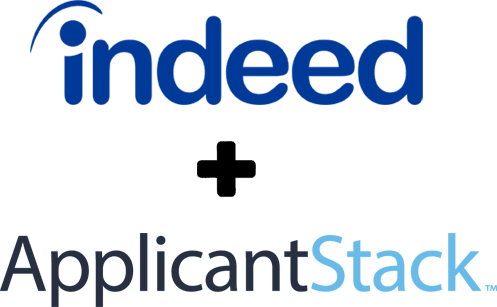Every hiring manager needs to know how to conduct an interview with a job candidate. Elevating your interviewing skills will help you:
- Make faster and better hiring decisions
- Differentiate candidates with similar qualifications
- Highlight your culture
- Reduce unconscious bias
- Avoid costly hiring mistakes
Let’s discuss how to conduct an interview the right way. Like anything, good interviewing requires preparation. How should the interviewer prepare for an interview? Notice that many steps take place before the candidate arrives. If you follow the steps and prepare well, the actual interview will go smoothly.
The Benefits of a Good Interview
The job interview sets the tone for everything that comes after. It is also a compliance minefield. Let’s review the benefits of a good interview:
- Allows the hiring manager to thoroughly vet the interviewee
- Helps verify qualifications and skills on the applicant’s resume
- Reveals the candidate’s expectations and understanding of the role and allows you to validate or clarify
- Allows you to answer any of the candidate’s questions
Bottom line? Good interviews improve hiring outcomes.
The Challenges of Interviewing
Interviewing is an important skill for recruiters, in-house hiring teams and hiring managers to master. Without proper training, there are many pitfalls. Let’s discuss the most common:
- Allowing bias to influence your decision
- Ineffective questions
- Asking illegal questions which increases the risk of a discrimination case
- Inconsistencies that affect the process
- Failure to put the candidate at ease
How to Prepare for an Interview
By all means, the things you do to prepare are just as important as what you do when you are conducting the interview.
Understand the Job Description
If you wrote the job description, you have a good idea what the position entails. But take it a step further by talking to managers. Ask them about soft skills. Also, talk to employees in the same (or similar) job role. When you have a deeper understanding, update the job description.
Write an Interview Script
Don’t ever go into an interview without a script–always prepare your questions ahead of time. Fortunately, it’s not hard to write structured interview scripts. We cover this in detail in: Why Structured Interviews Are Critical. Follow the steps to create structured interviews and questions to ask during an interview.
Questions to Ask During an Interview
It’s helpful to organize good interview questions into three categories: questions about job specifics (hard skills), soft skills (behavioral) and situational. Hard skills are also called technical skills and are job-specific capabilities or knowledge necessary for the job role. They are acquired through on-the-job training, experience or formal education. Therefore, hard skills can be quantified. For example, an ability to write code in JavaScript, measure blood pressure or speak Spanish.
Conversely, soft skills are behavioral attributes that help an employee succeed in their work. Working well with team members, problem-solving and effective time management are examples of soft skills that would help with any job. Soft skills are also called interpersonal skills, non-technical skills and essential skills. Situational questions relate to soft skills as well.
- Job role-specific: What experience and certifications do you have in the [INDUSTRY] field?
- Soft skills or behavioral: What if you had to solve a difficult problem and your manager was away?
- Situational questions: How would you respond to an angry customer?
Questions You Can’t Ask in an Interview
The Equal Employment Opportunity Act (EEOA) is designed to prevent employment discrimination. An interviewer can unwittingly increase the potential for bias with illegal interview question. The EEOA prohibits interview questions on the following topics:
- Age
- Race
- Ethnicity
- Gender
- Color
- Sex
- Sexual orientation
- Gender identity
- Country of birth
- Birthplace
- Disability
- Religion
- Marital or family status
- Pregnancy
- Salary history (in some states)
How do you avoid illegal interview questions? Create a script with legal questions and don’t deviate!
Business owners, recruiting and hiring managers make mistakes all the time. Therefore, protect your company by learning the do’s and don’ts of legal hiring. Additionally, if you have legal counsel, have them sign off on your interview questions.
The Importance of Standardized Scoring
It’s key to understand that to improve interviewing, you need to improve evaluation. To do this, standardize candidate scoring. An interview scorecard is the easiest way to do this. Use the job qualifications to create the scorecard. It doesn’t need to be complex, but each person on the interview team must use it. When everyone is working from the same playbook, it’s easier to compare candidates. It also helps to remove “gut feelings” from the process.
Share Your Mission and Values
The job seeker has the power in today’s employment dynamic. Moreover, it’s clear that job seekers care about what your company stands for. Certainly, the applicant is scrutinizing you as carefully as you are scrutinizing them. For this reason, write an Employment Value Proposition and practice sharing it. One of the best interview tips is to showcase your culture and values.
Interview Formats
Let’s discuss the most common types of interview formats.
- Phone screen
- Short, preliminary screening
- Individual interview
- One interviewer and one candidate
- Group interview
- One or more interviewers and two or more applicants
- Panel interview
- One applicant and two or more interviewers
- Technical interview
- Designed for technical positions including IT, data science, engineering
- May include requiring the applicant to answer technical questions or demonstrate skills
- Multiple-Round
- A process of several interviews, often in a mix of formats
- Used for extensive evaluation of higher level roles
(Source: Indeed.com)
The interview format will depend on the type of position and your hiring needs. If you’re doing high volume hiring, it may work to do a group interview. For example, if you need to quickly hire multiple candidates for the same job position, a group interview (in person or a virtual interview) may work for your company.
What is a group interview and when should you use them? SHRM gives these interviewing tips:
Group interviews are most effective when hiring for positions that require excellent people skills, especially when the job regularly deals with consumers or the public. Group interviews are also effective when teamwork is an integral part of the job. The group interview allows an employer to observe behaviors that are reflective of success on the job before the employer actually invests time and money into hiring a candidate. The Society for Human Resource Management
Review the Candidate’s Application
The more familiar you are with the candidate’s resume, the better. Firstly, it gives you important context. Secondly, it will help you maintain eye contact and put the candidate at ease.
Schedule the Interview Location in Advance
You don’t want to wander around looking for a conference room with the applicant in tow. If possible, use a private room with comfy chairs. A glass-windowed room can make an introverted candidate uncomfortable.
In the past two years, video interviews have become commonplace. If you conduct virtual interviews, ensure the tech is ready to go. Indeed, nothing lowers your confidence (and company image) like tech glitches.
Don’t Crowd Your Interview Calendar
Schedule enough time for the interviewee to elaborate where necessary. Add a 15-minute buffer between interviews so you never have to rush a candidate-or make the next one wait.
Download our free eBook: The Interview: The Step-by-Step Guide to Exemplary Hiring Practices.
Managing the Interview
How to Start an Interview
Now that you’ve prepared well, it’s time for the actual interview. Here are some interviewing tips for recruiters, hiring managers and small business owners:
- Turn off your phone or have your assistant hold your calls
- Offer the applicant a beverage
- Speak slowly
- Listen intently
- Ask the candidate if they have any questions and answer them (if you don’t know the answers immediately, write down the questions so you get the information and call or email the candidate promptly with the answers)
- Before ending the interview, explain the timeline and next steps
- Thank the candidate for their time
What to Watch For
Be prepared for common issues so you can get prevent them:
- Don’t overpromise–if the candidate asks for something you can’t guarantee, be honest and straightforward
- Make sure you let the candidate do most of the talking
- Resist the temptation to stray from the script
Post-Interview Steps
Create a post-interview process for documentation and follow-up. If you want to advance the candidate to the next stage, send an email right away. If you decide to eliminate the applicant from consideration, politely notify them as well. We mentioned candidate scorecards previously. Make sure you collect the scorecards from all interviewers. Encourage your team to fill them out during the interview or soon after while it is still fresh on their mind. Move the candidate to the next stage in your hiring workflow.
Recruiting Software Helps You Conduct Better Interviews
When considering how to conduct an interview, don’t forget the role of hiring software. ApplicantStack recruiting software helps you improve your interviews–and all of your hiring processes. Manage job descriptions, post to job boards, create structured interviews, and track applicants. The result? You will attract and hire quality employees faster.
You can try ApplicantStack for free. Visit ApplicantStack free trial.
This post is part of our hiring series which includes:
- Create a Job Description
- Define Your Hiring Criteria
- Post Job to Job Boards
- Candidate Screening
- Schedule Interviews
- How to Conduct Interviews
- Collecting Team Feedback
- Making Your Selection
- Extending The Job Offer
- Hiring Your Next Employee
- ApplicantStack Featured in Case Study of Home Health Agency & Hospice - November 17, 2022
- Ask Me Anything Recap: How To Configure Job, Candidate and Application Fields - November 17, 2022
- 3 Ways Hiring Software Saves Money for Your Small Business - September 29, 2022









